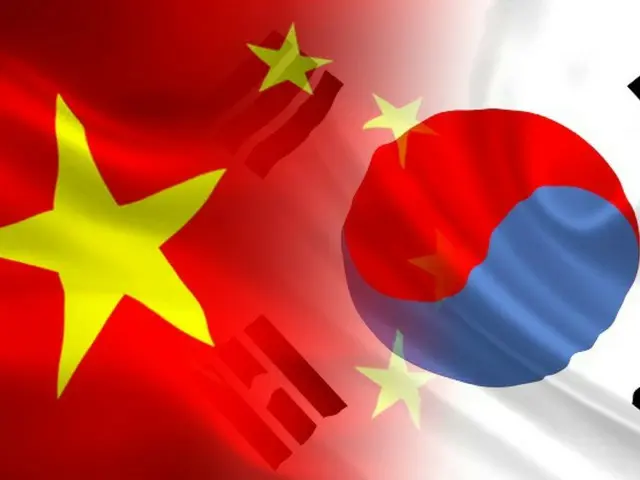If so, it will be the first time in four years since December 2019. However, China is currently strongly opposed to the sea discharge of treated water from the Tokyo Electric Power Company's Fukushima Daiichi Nuclear Power Plant.
It's unclear. The Japan-China-ROK Trilateral Summit Meeting was first held in 1999 at the time of an international conference in the Philippines at the suggestion of then-Prime Minister Keizo Obuchi. From 2008, the event will be held in three countries on a rotating basis.
became. So far, we have discussed how to deal with North Korea, which is advancing its nuclear and missile development, and economic cooperation. The 2019 conference was held in Chengdu, Sichuan Province, China in December, and a close meeting was held on dealing with North Korea.
We agreed to work together. They also confirmed that they would promote free trade, including the Regional Comprehensive Economic Partnership (RCEP) and the Japan-China-Korea Free Trade Agreement (FTA).
However, the following year, 2020, was postponed due to the deterioration of Japan-South Korea relations and the spread of the COVID-19 virus. It will also be held in 2021 and 2022.
did not In March of this year, Prime Minister Fumio Kishida held a joint press conference with South Korean President Yoon Seo-gyul, who was visiting Japan, and said,
"We reached a consensus," he said, expressing his desire to resume the Japan-China-South Korea summit. In addition, when the next talks are held, South Korea's Minister of Foreign Affairs Park Jin, who will be the host country, will
At the ASEAN (Association of Southeast Asian Nations) Plus 3 (Japan, China and South Korea) Foreign Ministers' Meeting held in July in Jakarta, he indicated his intention to aim to resume the Japan-China-South Korea summit.
China has also shown a positive attitude towards hosting the event. KEI Haimei, Ambassador to South Korea, spoke to Yonhap News last month about the trilateral summit meeting.
“China has consistently supported trilateral cooperation and has actively participated in it. prosperity
"I support showing the direction for this." Regarding cooperation among the three countries, Ambassador KEI said, "It is the desire of the people of the three countries that the three countries cooperate and promote common development.
``There are complex obstacles standing in the way of trilateral cooperation.'' Looking back on the history of trilateral cooperation, we believe that we are facing serious challenges and crises. We respect each other because we
We must join hands and work together to overcome difficulties." With the momentum for the event growing, on the 29th of last month, South Korea's Ambassador to the United States Cho announced that a Japan-China-South Korea summit would be held in South Korea within the year.
It was revealed that they are adjusting in the direction to do so. Ambassador Cho said, "As the host country, we are discussing with the two countries (Japan and China) and are making every effort to host the event."
In addition, Yonhap News reported on the 30th that regarding the trilateral summit meeting, ``Adjustments are being made to hold a senior official level consultation (SOC) in Seoul at the end of September.
I found out that.'' According to Yonhap, the high-level discussions included Takehiro Funakoshi, vice-minister of the Ministry of Foreign Affairs, Jeong Byung-won, assistant vice-minister of the Korean Ministry of Foreign Affairs (equivalent to the Ministry of Foreign Affairs), and vice-minister of agriculture and finance of the Chinese Ministry of Foreign Affairs.
Additional personnel are expected to attend. Yonhap said, ``Once senior official-level talks are held, discussions toward resuming the trilateral summit are expected to begin in earnest.''
However, China strongly opposes the release of treated water from TEPCO's Fukushima Daiichi Nuclear Power Plant into the ocean, and this has become a new pending issue between Japan and China.
Therefore, there may be some twists and turns. Since the release into the ocean, there have been incidents in China where bricks were thrown at the Japanese embassy in Beijing, and stones and eggs were thrown at Japanese schools in Shandong province and other areas. Ma
In addition, harassing phone calls have been coming to Japan from China one after another. A spokesperson for China's Ministry of Foreign Affairs said that they were "not aware" of the nuisance calls, and that regarding the spate of stone-throwing, "we are not releasing them into the ocean."
The root cause is that we forced it," he said, arguing that the Japanese side was the cause. In addition, the Chinese government has responded to last month's Japan-U.S.-South Korea summit meeting, where China policy and other issues were discussed, calling it ``crude interference in domestic affairs.''
there is With friction between Japan and China and between China and South Korea, will a trilateral summit be realized? South Korea's ambassador to the United States Cho said, "Japan is always positive, and China is also quite proactive."
and hopes for its early realization.
2023/09/04 10:14 KST
Copyrights(C)wowkorea.jp 5

